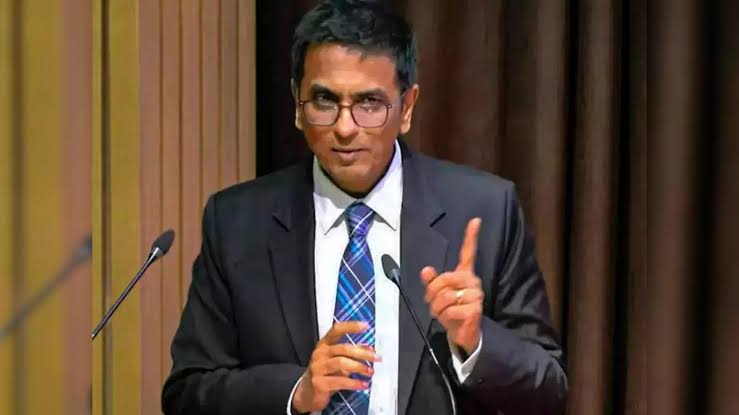New Delhi: The Supreme Court on Wednesday called the criticism of the Punjab and Haryana High Court of its verdict scandalous and unnecessary. Hearing a suo moto case over the high court’s unusually harsh observations, a bench headed by Chief Justice of India DY Chandrachud said the Supreme Court was pained by the remarks.
“Observations made by Punjab and Haryana HC in its order are scandalous,” said CJI Chandrachud.
The CJI said judges are not aggrieved by the orders passed by higher courts, but discipline has to be maintained.
“We are pained by observations made by Punjab and Haryana HC judge,” said the five-judge bench.
The court said “unnecessary observations” were made about so many things by the Punjab and Haryana HC.
The Supreme Court on Tuesday took suo motu cognisance of an unusual order issued by a Punjab and Haryana high court judge, who criticised a stay order previously passed by the apex court while commenting that the apex court tends to perceive itself as more “supreme” than it is and views high courts as being less “high” than they are.
Reacting to the remark, CJI Chandrachud said neither the Supreme Court nor high courts are supreme. “The supremacy is actually of the Constitution,” he added.
A five-judge bench, consisting of Chief Justice of India Dhananjaya Y Chandrachud and justices Sanjiv Khanna, BR Gavai, Surya Kant and Hrishikesh Roy, was hearing the matter.
The case, titled “In Re: Order of Punjab and Haryana High Court Dated 17.07.2024 and Ancillary Issues,” was registered following the high court order on July 17. In that order, a single bench led by Justice Rajbir Sehrawat made several critical remarks about the Supreme Court’s decision to stay contempt proceedings initiated by the high court in a case.
Justice Sehrawat noted that the Supreme Court stayed the contempt proceedings not while hearing an appeal against the order initiating contempt, but in an appeal against the order that led to the contempt proceedings.
He observed: “Seen at a psychological plane this type of order is actuated, primarily, by two factors, firstly a tendency to avoid owning the responsibility of the consequence which such an order, in all likelihood, is bound to produce, under a pretence that an order of stay of contempt proceedings does not adversely affect anybody. Secondly, a tendency to presume the Supreme Court to be more ‘Supreme’ than it actually is and to presume a High Court to be lesser ‘High’ than it constitutionally.”


